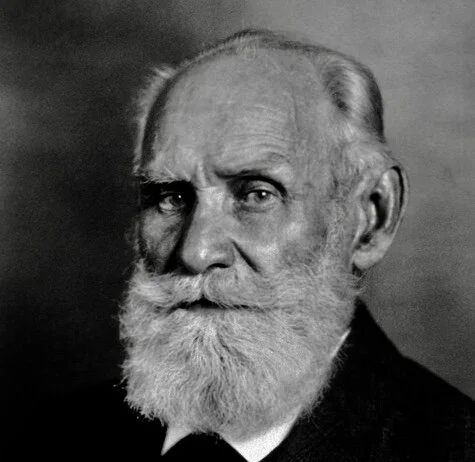
Sample chapters
Chapter 1 - Law, logic, relationships
Quite an intense yet mischievous-looking chap, Ivan Petrovich Pavlov. He was a Russian physiologist best known for his ……………………
Despite the thousands of hours that we spend trying to master technical and functional skills, they matter little unless you can truly develop the art of relationship building.
We all know this; leaders, managers and colleagues talk about it regularly, and we see daily success from those who are good at it. Despite this knowledge, however, we do bugger-all about it. Hardly anyone in corporate life really knows how to focus on it, and, concerningly, even fewer know how to get better at it. Instead we consistently see brilliant individuals, whose ideas, innovations and creativity are phenomenal, fall at the very first hurdle. Conversely, I also feel sorry for people who are excellent at fostering relationships: seldom do they get recognised, rewarded or leveraged to the degree they deserve.
Law and logic are wonderful things. Invaluable. Very seldom, however, are they as important as relationships. Start with believing and knowing the importance of relationships. Then make and take the time to work on this skill set. Do not treat it as a ‘nice to have’, but rather a ‘must do’. Track your progress and replicate. It will be transformational to your personal development and career, and it will also be your best chance of sustained success. Above all, please do not just nod in agreement and then do nothing — that would be a waste.
Chapter 2 - Drains & Radiators
Life is too short to be surrounded by negative people, In fact, life is too short not to be surrounded by positive people. When we are …………………..
Here is an age-old question for you: does happiness lead to success or does success lead to happiness?
There is a multibillion-dollar industry that now exists to answer that question. It’s science, psychology and academia rolled into one, art, self-discovery and spirituality united. Pursuit of happiness (encompassing life coaching and self-help, among others) is big business, and a noble one at that.
You are likely familiar with the concept of employee engagement. If it’s not termed ‘engagement’, then odds on it will be called ‘satisfaction’, ‘culture’, or even just a plain old ‘pulse’ survey. Regardless, most organisations subscribe to one of these concepts at one stage or another. Big money is spent and considerable hours are devoted, all in the name of making us infinitely happier.
I’m not going to bad-mouth these programs or surveys. I’ve taken part in them throughout my entire career. Most times I’ve enjoyed them, and many times I have benefited from them.
But if I was pushed into a corner and asked what I would do if left to my own devices, well, I wouldn’t choose a survey. I wouldn’t spend countless hours on analysis, discovery sessions or ‘feeling’ forums. I wouldn’t create team action plans or even dot colourful motivational posters throughout the office. No, it would be a lot simpler than that.
I would choose to surround myself with radiators and avoid drains like the plague. That’s what I would do.


